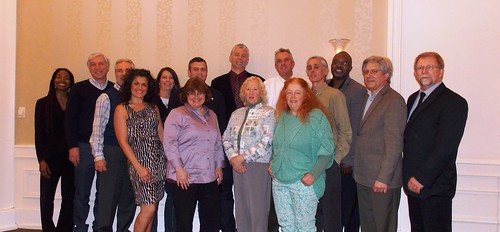
From Shayla Bailey, USDA: This is the twentieth installment of the Organic 101 series that explores different aspects of the USDA organic regulations. To mark the 20th milestone, USDA invited Dr. Jean Richardson, Chair of the National Organic Standards Board (NOSB), to be a guest author. The NOSB provides critical support to the USDA and the organic community. We thank the NOSB for their commitment to the organic community, and the integrity of the organic label.
Twice a year, the National Organic Standards Board (NOSB) meets to advise the Secretary of Agriculture on what substances should be allowed or prohibited in organic agriculture. The NOSB recommends standards, policies and guidance that help shape the organic regulations to the National Organic Program (NOP), part of USDA’s Agricultural Marketing Service.
The NOSB was established under the Organic Foods Production Act of 1990, and in accordance with the Federal Advisory Committee Act. Made up of dedicated volunteers, the 15-member board includes four organic farmers, two handlers, three individuals with expertise in environmental protection or resource conservation, three representatives of public interest or consumer interest groups , a scientist, an organic retailer and an organic certifying agent. Earlier this year, I was honored when my fellow board members elected me as the Chair.
All NOSB members are active representatives of the organic community and bring a wealth of perspectives and life experiences to the table. My background, for example, is in environment, biogeography, law and agriculture. I am Professor Emerita at University of Vermont where I taught Environmental Studies and Environmental Law, I work with my family to produce organic maple syrup, and I have served as an independent inspector of organic farms and processors for the last 14 years and as a consultant on rural land use planning. Additionally, I was appointed by President Clinton to the Joint Public Advisory Committee in the Commission on Environmental Cooperation in NAFTA and am no stranger to politics!
Today, we will convene the fall NOSB meeting in Louisville, Kentucky. We will discuss many issues, including substances that are up for review. It is the NOSB’s responsibility is to review substances and make recommendations about their use in organic production and processing. The organic standards are designed to allow natural substances in organic farming while prohibiting synthetic substances with some exception. The National List of Allowed and Prohibited Substances (National List) lists the exceptions to this basic rule.
NOSB members use specific criteria when voting on substances, including the essentiality for the substance and its impacts on human health and the environment. If the NOSB recommends adding a substance to the National List, USDA reviews the recommendation and determines whether to move forward with the rulemaking process. All substances are reviewed every five years. This process, called a “sunset review,” ensures that regulations remain relevant, and are constantly reviewed and refined to keep up with new information and organic innovations.
In addition to the responsibility of reviewing substances, we also assist in recommending standards for the NOP. Discussion documents and proposals on critical issues start in the subcommittees, such as crops and livestock. Every NOSB member serves on at least two subcommittees which meet regularly by phone.
One of the most critical parts of our work as a board is input from the public. Public participation is a key component to developing and updating the organic standards, including the National List. When changes are made, the public is invited to provide their input throughout the process – including the NOSB meetings which are always open to the public. I would strongly encourage all stakeholders and consumers to get involved on the issues that they care about.
Given the breadth and scope of the NOSB’s responsibilities, members have to demonstrate a commitment to the integrity of the organic industry. Our current board is as diverse as the organic community we serve. The work is a really interesting mix of science, agriculture, policy, law, politics and personalities. It is a great honor to be able to serve the organic community.



